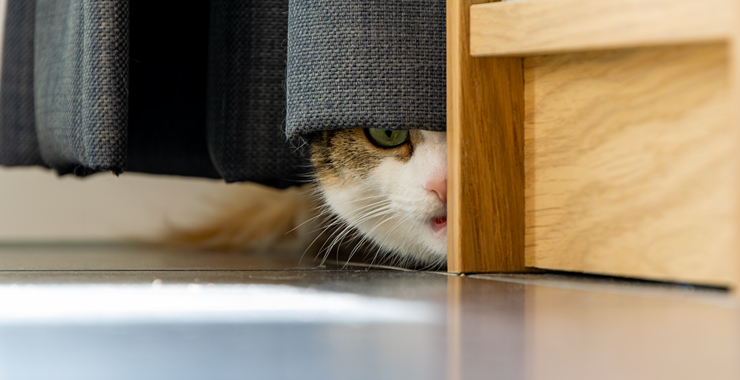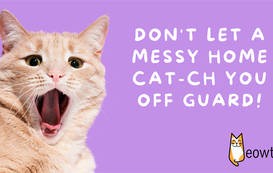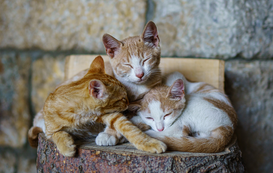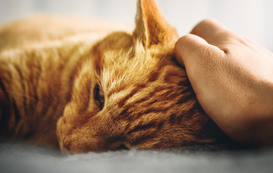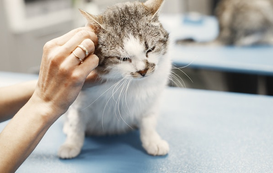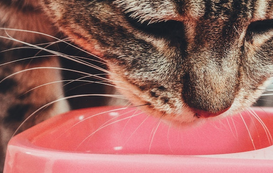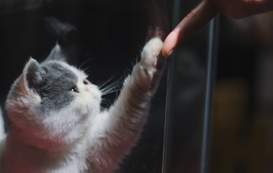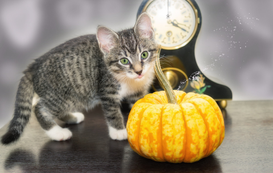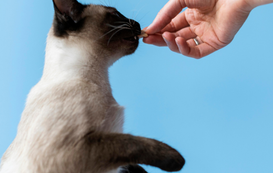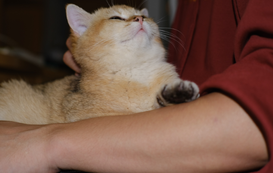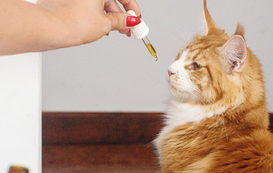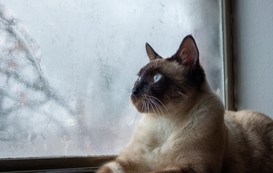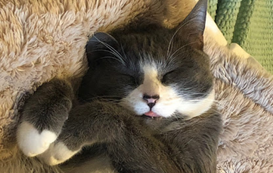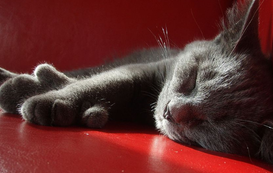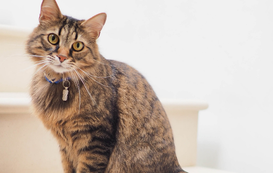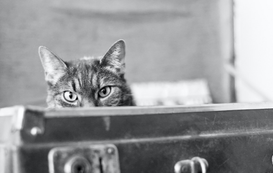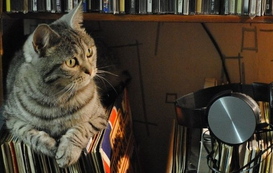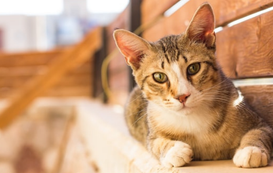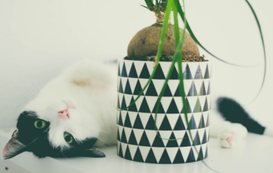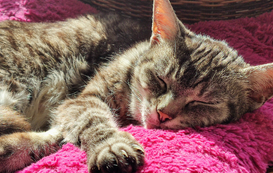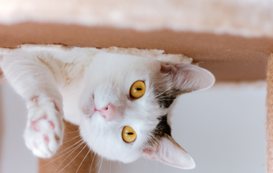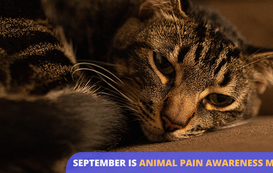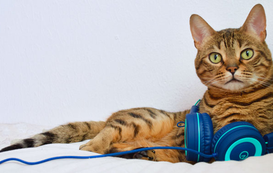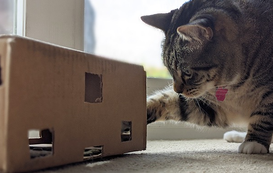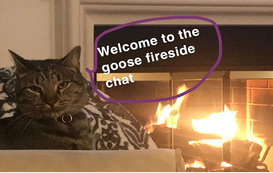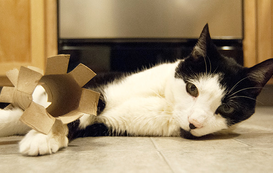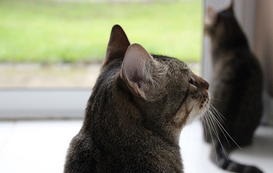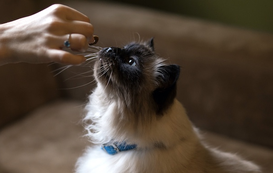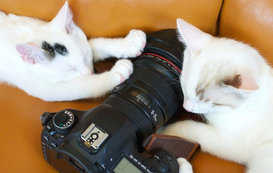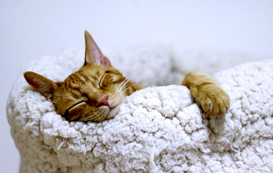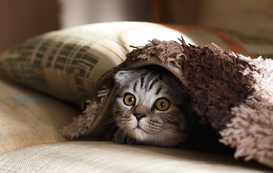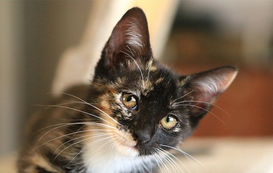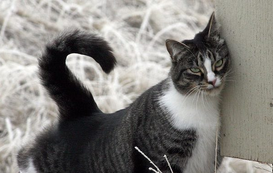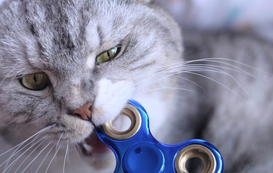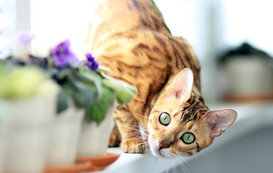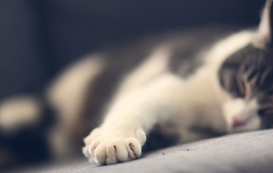As pet owners, we often encounter situations that make our feline friends feel frightened or anxious. Cats can be sensitive creatures, and loud noises, unfamiliar environments, or changes in routine can trigger their fear response. It's essential for us to understand how to calm down a scared cat to support their well-being and help them feel safe. Let's explore some effective strategies to soothe and reassure your fearful feline companion, including tips on how to handle a scaredy cat.
Create a Safe Haven
When a cat is scared, they may seek a secure space where they can feel protected. Designate a quiet area in your home as a safe haven for your cat. It could be a separate room or a cozy corner with their bed, toys, litter box, and food and water bowls. This sanctuary will provide your cat with a retreat to retreat to when feeling overwhelmed.
Provide Hiding Spots
Cats instinctively seek hiding spots when they feel frightened. By providing hiding spots throughout your home, you'll help your cat cope with fear more effectively. Cardboard boxes, cat tunnels, or even a dedicated cat condo can serve as comforting hiding spots, giving your cat a sense of security. Having at least one viable hiding spot per room is ideal as this allows your cat to quickly retreat, wherever they may be.
Maintain a Consistent Environment
Cats are creatures of habit and thrive on routine. Sudden changes in their environment can trigger anxiety. To alleviate their fear, maintain a consistent daily routine. For more tips on stress reduction, check out our guide on recognizing and diminishing stress in your cats. Keep feeding times, play sessions, and litter box cleaning on a regular schedule. If you are going out of town and booking a cat sitter on Meowtel to look after your kitty, it is helpful to communicate your cat's preferred meal times. When introducing changes, such as new furniture or rearranging a room, do so gradually, allowing your cat to adjust at their own pace.
Use Pheromone Products
Pheromone products, such as Feliway, mimic the natural facial pheromones that cats produce when they feel safe and secure. These products come in the form of diffusers, sprays, or collars and can help create a calming atmosphere for your cat. Pheromone therapy has been shown to reduce anxiety in cats, making it a valuable tool in calming them down.
Soft Music or White Noise
Playing soft classical music or ambient sounds can create a soothing environment for your scared cat. (Curious if cats enjoy music? They often do!) Music with a slow tempo and a low volume can help drown out alarming noises from the surroundings and promote relaxation. Consider leaving a radio or a sound machine on in your cat's safe haven during stressful situations.
Gradual Exposure to Fears
If you've identified specific triggers that cause fear in your cat, it may be helpful to desensitize them through gradual exposure. For example, if your cat is afraid of visitors, start by allowing them to smell the scent of unfamiliar individuals on a piece of clothing. Gradually progress to short supervised visits, rewarding your cat with treats and positive reinforcement. This method can help your cat associate the fear-inducing stimulus with positive experiences. This is part of the reason many sitters on Meowtel may offer a meet and greet before the start of your reservation!
Play Therapy
Engaging your cat in interactive play sessions can help redirect their focus and alleviate anxiety. Use interactive toys, such as fishing rod-style toys or puzzle feeders, to stimulate their natural hunting instincts. Regular playtime provides an outlet for their pent-up energy and helps reduce stress levels. Remember, sitters on Meowtel often absolutely love playtime too and can help keep this routine going while you are away.
Massage and Grooming
Massage and grooming not only strengthen the bond between you and your cat but also promote relaxation. Gently stroke your cat's fur in slow, rhythmic motions, paying attention to areas they enjoy being touched. Brushing your cat's coat regularly can also be a calming experience, as it mimics their mother's grooming behavior.
Consider Herbal Remedies
Consulting with a veterinarian is essential before introducing any herbal remedies or supplements to your cat's routine. Some natural products, like chamomile or valerian, can have calming effects on cats. However, it's crucial to use them under professional guidance and in appropriate dosages to promote your cat's safety.
Seek Professional Help
In severe cases of anxiety or fear, it's advisable to consult with a veterinarian or a qualified animal behaviorist. These professionals can provide personalized guidance and, if necessary, recommend behavior modification techniques or medication to help your scared cat overcome their fear and anxiety.
In Summary
Calming a scared cat requires patience, understanding, and a willingness to provide a safe and comforting environment. By implementing the strategies mentioned above, you can help alleviate your cat's fears and strengthen the bond you share. Remember, each cat is unique, and it may take time to find the most effective techniques for your feline companion. Ultimately, by offering love, reassurance, and a nurturing environment, you can help your scared cat feel secure and content.
If you're looking to leave town and want to find a caring sitter, Meowtel can help connect you with local cat lovers. Once you've scheduled a reservation, you might consider requesting a meet and greet with your sitter to help your kitties feel comfortable. Sharing details about your cat's feeding and playtime routine can also help make the experience as seamless as possible.
Ready to find the purrfect sitter for your feline friend? Find a cat sitter on Meowtel today!

